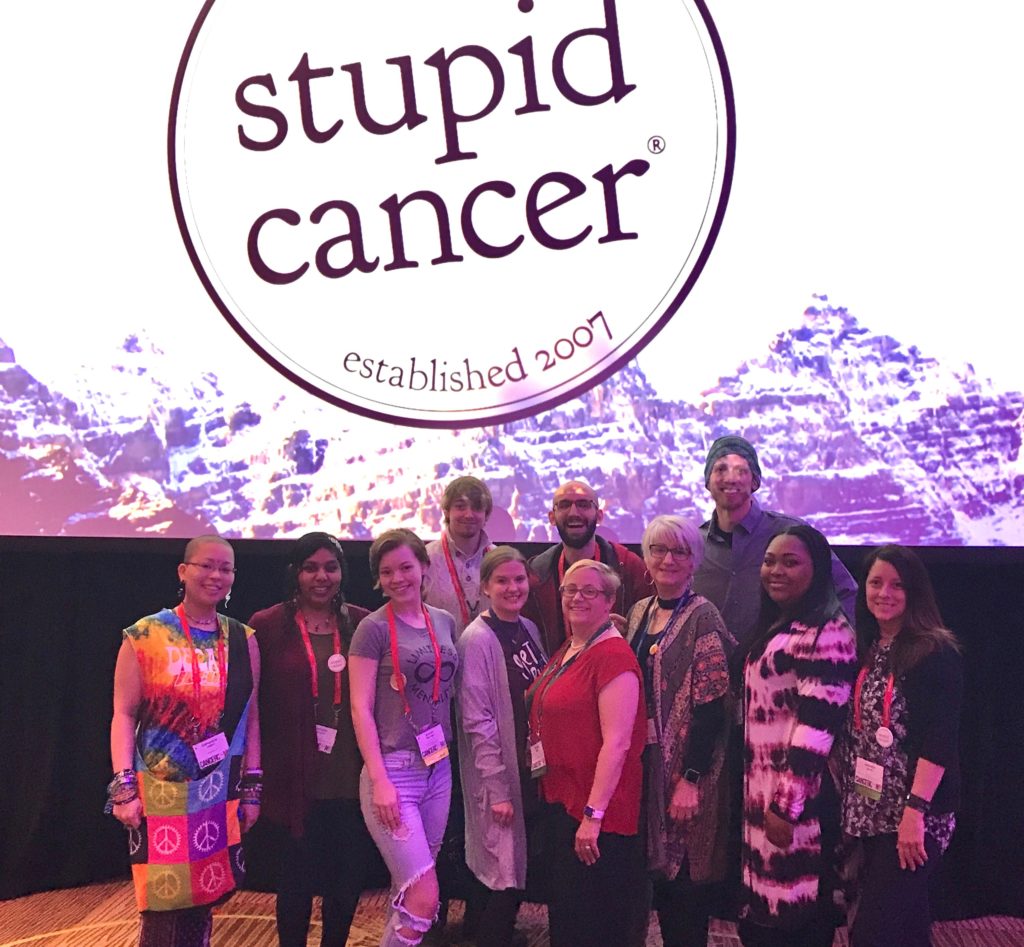A Slippery Slope Indeed
by Dan Dean

At this year’s CancerCon in April—a national cancer conference for adolescents andyoung adults—I co-presented with Amelia Baffa and Dr. Jennifer Giesel a talk on the mental health challenges many cancer patients and survivors experience and the ways to treat them—TheSlippery Slope of Survivorship. Both Ameila and Jenn support the adolescent and young adult cancer population at University Hospitals with psychosocial care. Our presentation reminded me of a time early in my survivorship experience, two or three months after treatment ended in 2003.Several well-meaning friends suggested I see a therapist to help make sense of this intense, life-altering experience. In my family, therapy wasn’t necessarily stigmatized, but no one in my family used it before either, aside maybe from consulting our family priest. And so I didn’t really consider it as a tool, unless things got really bad.
I ended up working through all of challenges in survivorship without any kind of professional help. I read tons of books, tried different approaches to living in my new normal, and consulted with close friends and family about how to make sense of things. I did a lot of the heavy lifting in the three years after treatment ended and largely came out okay. But I was fortunate in that my biggest supporters—my mom and brother (and dog Lady)—did as much as they could to support my study in self-care and recovery. Close friends augmented their support and I leaned heavily upon them to get through.
Looking back, I realize that without them, I could have developed depression or PTSD or any number of ailments of the mind. Back then, I didn’t know the terms and what they meant, but I can see how my support systems’ unwavering commitment to my recovery more or less kept me on track and clear of more serious issues.
Not everyone is as lucky as I was. What I learned from Amelia and Jenn is how professional therapy, the way an individual processes cancer, and a support system all work together; my recovery leaned toward the latter two. For other people, that metric can be different; some many not have access to a professional or a support system, left on their own to figure things out.
Now that I am 14 years out from my cancer experience, I recommend the value of professional psychosocial support, even though my path was more solitary and self-guided. There are plenty of opportunities to take the baton a therapist hands off to you and wrestle with those challenges on your own.
The two therapies I wished I had that could have sped along parts of my recovery were 1) diaphragmic breathing and 2) using a thought log. Diaphragmic breathing is a great deep breathing technique that slows the mind down and calms a person’s physiology so they can actually do therapeutic work. Thought logs are a step-by-step way to break down recurrent, unhelpful thought patterns by challenging the assumptions behind them. They’re helpful not just for cancer patients, but anyone dealing with day-to-day life stress. (to download both tools, visit www.m-powerment.org/cancercon)
There’s no exact method a person can use to find their way from the end of treatment and into their new normal. The keys, in my opinion, to make it through are keeping on the path toward the new normal—even though it may take you down many side streets you don’t necessarily want to settle on—and not going at it alone.
I certainly tried many approaches and there were some I discarded early on and others that have stayed with me well beyond those initial weeks and months into survivorship. But as I engaged in an extended time of trial and error with all of those therapies, it was the constant support of my family and close friends that kept me on the path and into the life I enjoy today.
Dan Dean is a 13-year survivor of stage IV non-Hodgkin’s lymphoma. Recognizing that few resources exist geared specifically toward men affected by cancer, Dan founded M Powerment to bring men of all ages together to lead amazing, impactful lives after a cancer diagnosis. A lifelong Cleveland sports fan, Dan also plays basketball, kayaks, hikes, and likes to go trail running.
Dan is also a SGAYA Board Member.
The website for the therapies presented at CancerCon 2017 is www.m-powerment.org/cancercon
Dan’s professional sites: www.dan-dean.com and www.m-powerment.org


Here are some photos from this year’s #CANCERCON 2017 event. Many thanks to our donors who support the Steven G AYA Cancer Research Fund. This year you sent six cancer survivors to Stupid Cancer’s CANCERCON conference in Denver! FIGHT! CONQUER!! CURE!!!





